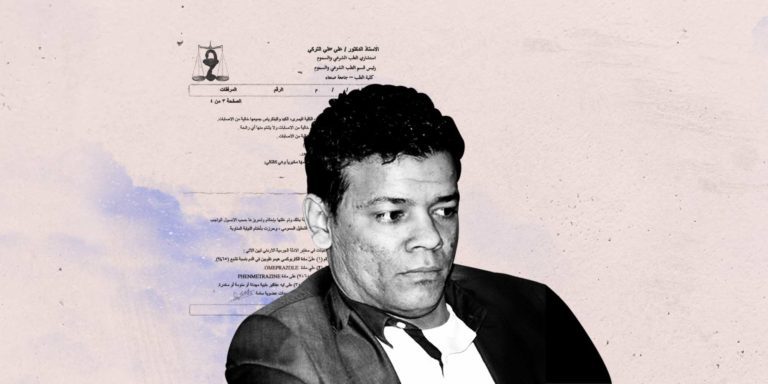At first glance, criticism of what could be seen as a US failure to broker a peace agreement to end the Yemen War may seem valid. Washington lacks access to the Iran-aligned Houthi movement, one of the main parties in the conflict, which has refused to engage in the diplomacy triggered by the Biden administration.
Unlike his predecessors Obama and Trump, Biden has appointed a special envoy to Yemen in an attempt to stop the war. The refusal of the Houthis to engage with the White House’s “Messenger of Peace” should come as no surprise to decision makers in Washington, nor to any Yemen academic or expert.
Such obstinacy is to be expected in the complex web of seven years of war, in which the US has played an active role on many levels. Add to that: the complications related to the US withdrawal from the Iran nuclear deal.
It is a situation that requires patient and sustained efforts to remove any obstacles, and not stop at simple, insignificant definitions of the situation. At the forefront of such phrasings is the conception of the war being a conflict between two parties (the Houthis and Saudi Arabia), which will come to an end as soon as an agreement is reached.
Reducing the Yemen War, with all its problems and complexities, to a conflict between just two actors is certainly an incomplete view, which inevitably leads to one-dimensional and immature conclusions. This is exactly what Yemen does not need. There is instead an urgent need for reflections that accurately present all the facts and dimensions of this multilayered tragedy.
Of course, the Houthis, who have controlled the capital Sanaa and most of northern Yemen since 2014, are a major party to the continuation of the war. And they are a key player in impeding efforts to reach a settlement to end it. It is important that they will be held accountable for their conduct and abuses. The same is true for Saudi Arabia.
What is missing in the many analyzes by US decision makers are the other elements that cause the war to continue. They fall in many aspects not outside the influence sphere of the US and its allies.
An example of the less visible dimensions of the Yemen War is the situation in Aden, the temporary capital of the internationally recognized government backed by the military coalition led by Saudi Arabia and the UAE, both well pampered US allies, as well as the situation in all territories recovered from the Houthi movement.
These areas are often plagued with chaos, infighting, human rights violations, corruption and governmental and economic failure, which has created safe havens for extremist groups to organize and grow. They provide a stark contrast to what was once perceived as an opportunity to build a state model that was the antithesis of the Houthi theocratic experience.
The same is true for the internationally recognized government, the leaders and institutions of which, are almost permanently residing, voluntarily or forcibly, outside Yemen. It is a situation that has generously helped grant the Iranian-backed Houthi movement the upper hand in the conflict.
This is an essential component of the Yemen file, which impacts the rights and lives of millions of people throughout the country, as well as the negotiating positions of the different parties, and their perceptions of how to achieve peace.
Despite the valid criticism directed at the internationally recognized government of Yemen, any objective research will recognize the roles played by the Emiratis and Saudis. They led the internationally recognized government to failure through a series of traps set in the temporary capital Aden and other nominally controlled territories.
First and foremost, there is the establishment of armed groups outside the law, enabling them to have actual control to disrupt any attempt to come to effective government rule, and thus making a large part of the Yemeni population suffer.
In a broader context, the US pushing Saudi Arabia to announce peace initiatives in Yemen is clearly not enough. The Saudi Arabia tendency towards peace, like the American one, does not lie in their publicized statements, but rather in its conduct and that of its main ally, the UAE. Immediate positive actions must be undertaken and negative ones must be stopped.
The US should push Saudi Arabia, the UAE and their allies to take steps that will have a positive impact on the people of Yemen, including:
Reopening the Sana’a International Airport for civilian flights
Paying civil servant salaries
Covering the Humanitarian Response Plan (HRP)
Releasing all civilian detainees
Ceasing all UAE support for armed groups,
Reintegrating all armed groups under the Ministries of Interior and Defense in accordance with Yemeni law
Handing over all vital facilities in Aden, such as airports, seaports and government institutions
Removing armed forces and military camps from Aden and other cities, including Balhaf, and re-deploying them to military areas
Releasing all detained and forcibly disappeared and closing all illegal places of detention
Consolidating the central bank
Supporting all basic services, electricity in particular
Activating law enforcement institutions
Resuming oil and gas exports, while activating control and anti-corruption mechanisms
Operating Aden airport and making it available to commercial airlines.
Unless the US finds creative ways to address such issues, the Biden administration’s promises regarding the Yemen War will be questioned, and every move, including sending a special envoy to Yemen and other countries in the region, will be regarded as mere propaganda, adding yet another commentator to the club of thousands of commentators dedicated to the Yemen file.
Without efforts targeting all elements of the Yemen War, the special envoy’s mission will be just a nominal move aimed at relieving the Biden administration from its electoral promises and resuming warm relations with Saudi Arabia in order to continue arms sales with a clear conscience.
Read Also:







